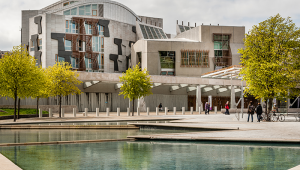Believe no one who says they expected the May 2015 Scottish SNP landslide even though the opinion polls had predicted it. Not even the most optimistic SNP supporters believed that they could benefit from the largest swing in modern election history.
From six MPs in 2010 to 56 out of 59. Nothing like this has ever been seen before and probably never will be again. In Glasgow North East, the swing to the SNP was so large – 39.3% – that it broke the BBC’s swingometer.
Labour now has only one seat in Scotland – Edinburgh South. The Liberal Democrats, who used to have wide representation in the Borders and the north have been wiped off the mainland altogether, their remaining seat being Orkney and Shetland.
The Tories were saved from oblivion by a few hundred votes, but still have fewer MPs than Scotland has giant pandas. Poor David Mundell, the Scottish Secretary, will stand alone at Scottish Question Time faced by 58 opposition MPs.
But what does it mean in the longer term? Has Scotland declared UDI? Can the Union survive? Will there be another referendum? Is Alex Salmond back in charge of the SNP only months after resigning as leader?
Well, the first thing to remember is that Scotland voted seven months ago to remain in the UK by a significant margin of 55% to 45%. There is no reason to suppose that the result would be any different were there to be another referendum in the near future.
This probably explains why the SNP’s new leader, Nicola Sturgeon, has been insisting that she abides by that referendum result and has no plans for another any time soon.
Alex Salmond is back in the Commons as MP for Gordon and will be a very large presence, though he is firmly on the backbenches and Sturgeon has made clear she is the boss.
The Union is in no immediate danger because the 56 SNP MPs do not hold the balance of power in the House of Commons as many expected they would. Their formal power is very limited in a parliament of 650. There is no way, for example, that they could block the renewal of Trident.
One suspects, though, the fact that nearly all of Scotland’s elected representatives oppose nuclear weapons might make some civil servants and military chiefs wonder if renewal is still viable.
The SNP don’t expect to get full fiscal autonomy any time soon, but they believe they can win further concessions from the Conservative government on taxation and welfare. Everyone seems to agree that the Smith reforms devolving income tax to Holyrood do not go far enough.
David Cameron probably never expected he would be in a position to deliver on his promise of English Votes for English Laws. Excluding non-English MPs from key votes in the Commons could unite all the opposition parties and the SNP will lead the charge here.
But the crunch will come over Europe. The Nationalists argue that it would be illegitimate for Scotland to be taken out of the European Union on the strength of English votes. Nicola Sturgeon says that the “family of nations” of the UK – Scotland, Northern Ireland and Wales – should each have veto on any EU departure. The UK government does not agree.
Cameron may find that, ironically, he has to seek the support of the SNP against any Eurosceptic backbench rebellion given the Conservatives’ wafer-thin majority in the Commons.
If the Nationalist MPs are willing to hunker down, learn the ropes and avoid the temptations of gesture politics, they could find that they have a lot of influence.












